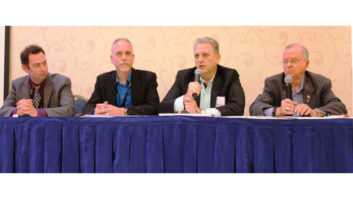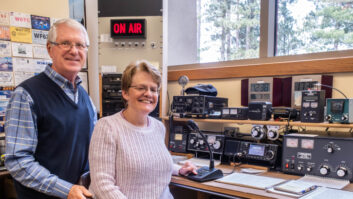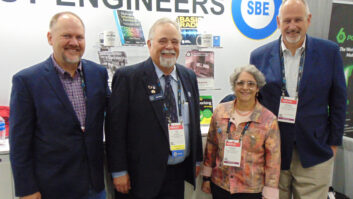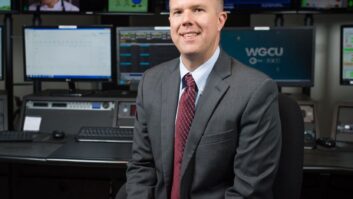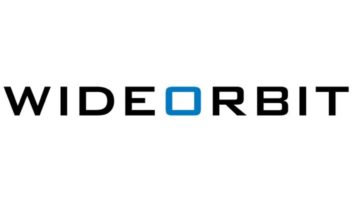WASHINGTON � Samsung Electronics is committing $1.2 billion to U.S. research and project support for Internet of Things ventures during the next four years, seeking to accelerate development of IoT projects ranging from smart cities and consumer services to industrial and healthcare initiatives. �
�
At a Washington symposium on Tuesday, Samsung vice chairman/CEO Oh-Hyun Kwon also unveiled the “National IoT Strategy Dialogue,” a consortium of technology companies that will address the upcoming Department of Commerce IoT proceeding and the pending “Developing Innovation and Growing the Internet of Things” Act in Congress. Intel is the initial co-founder, and the Information Technology Industry Council will manage the “Strategy Dialogue” advocacy group, which will seek additional members from the technology and communications sectors.
�
At the�Samsung-sponsored �Internet of Things � Transforming the Future� conference�Kwon urged that IoT advocates put a priority on “technologies that connect each other.” He urged that organizations should �start talking and thinking differently about IoT,� recommending greater concentration on “a human-centered approach, embracing the life-changing possibilities of the technology.”
�
At the well-attended event, government and technology leaders offered a variety of perspectives on the evolving IoT infrastructure, which many expect will find its first major acceptance in enterprise and industrial applications, including “smart city” ventures � a topic that many cable operators, along with other telecom providers � are exploring. �
�
Speakers also examined IoT initiatives that will affect aging, education, agriculture, autonomous vehicles and other proposed application. But they also acknowledged that the coming years will generate IoT ventures that are as-of-yet unimaginable.
�
Alan Davidson, director of Digital Economy and senior advisor to Secretary of Commerce Penny Pritzker, confirmed that an IoT policy “green paper” will be posted by autumn.
�
“We’ve seen something �that is a confluence of both technical capabilities and business imperatives and demand … that will be qualitatively different,” said Davison, who was formerly a top Google lobbyist in Washington. “We’re very excited about what’s going to happen [in] industrial IoT,” he added, emphasizing that the “policy issues are a little less fraught” than in consumer applications. He added that he expects internal Commerce Department units will adopt IoT technologies quickly for uses in census, weather and other services, citing IoT’s “ubiquity of connectivity.”
�
Like many other speakers, Davidson emphasized the privacy and security hurdles in IoT.
�
“A lot of the bedrocks of our privacy approach are challenged in this area,” he said, citing as an example “devices where people cannot click on a privacy notice. We’ll have to be clever and innovative on how we give consumers notice and how we use data.”�
�
Davidson also said that policy will look at “field upgradability.”
�
“Do consumers even know that this is something that have to do?” he asked rhetorically. “It is challenging the traditional notions. We’ve asked a lot about [security]… We’re keenly interested in these issues. It will be a big part of a paper we’ll �put out in the fall.”
�
Issa Challenges Spectrum Issues in IoT Rollout
Rep. Darrell Issa (R-Calif.) focused on the wireless appetite of the growing IoT ecosystem and warned that current spectrum policy is not prepared for the onslaught.
�
“For the IoT to do what the Internet did, government has to recognize it’s outgrown them,” said Issa, a co-founder of the Congressional Internet Caucus and� chairman of the House Subcommittee on Courts, Intellectual Property and the Internet.
�
“Government has been selling spectrum as a way of doing business and promoting business,” he said. “We take billions of dollars from companies and we say we’re doing them a favor … when what we’re really doing is balancing the budget on a hidden tax. Worse than a tax, it’s a one-time sale.”
�
“The Internet is available to all of us because we did not sell the spectrum of the Internet,” Issa said. Citing unlicensed spectrum availability, Issa proposed that “every other bit of spectrum in a non-interferenced [sic] process … needs to be opened up.
�
“Government needs to say that no spectrum is off-limits as long as it does not interfere with existing … obligations. When those run out … government [should] create almost unlimited unlicensed space. …� That’s the future of the IoT,” Issa said.
�
“Those of us who care about the IoT going beyond anything described here …� need to realize that infinite bandwidth available everywhere and monetized by self-interest� rather than by exclusive license is the future of the IoT,” he emphasized. “Everybody pays their own way by creating/innovating a new product… that opens a greater connectivity to other products.”
�
�





